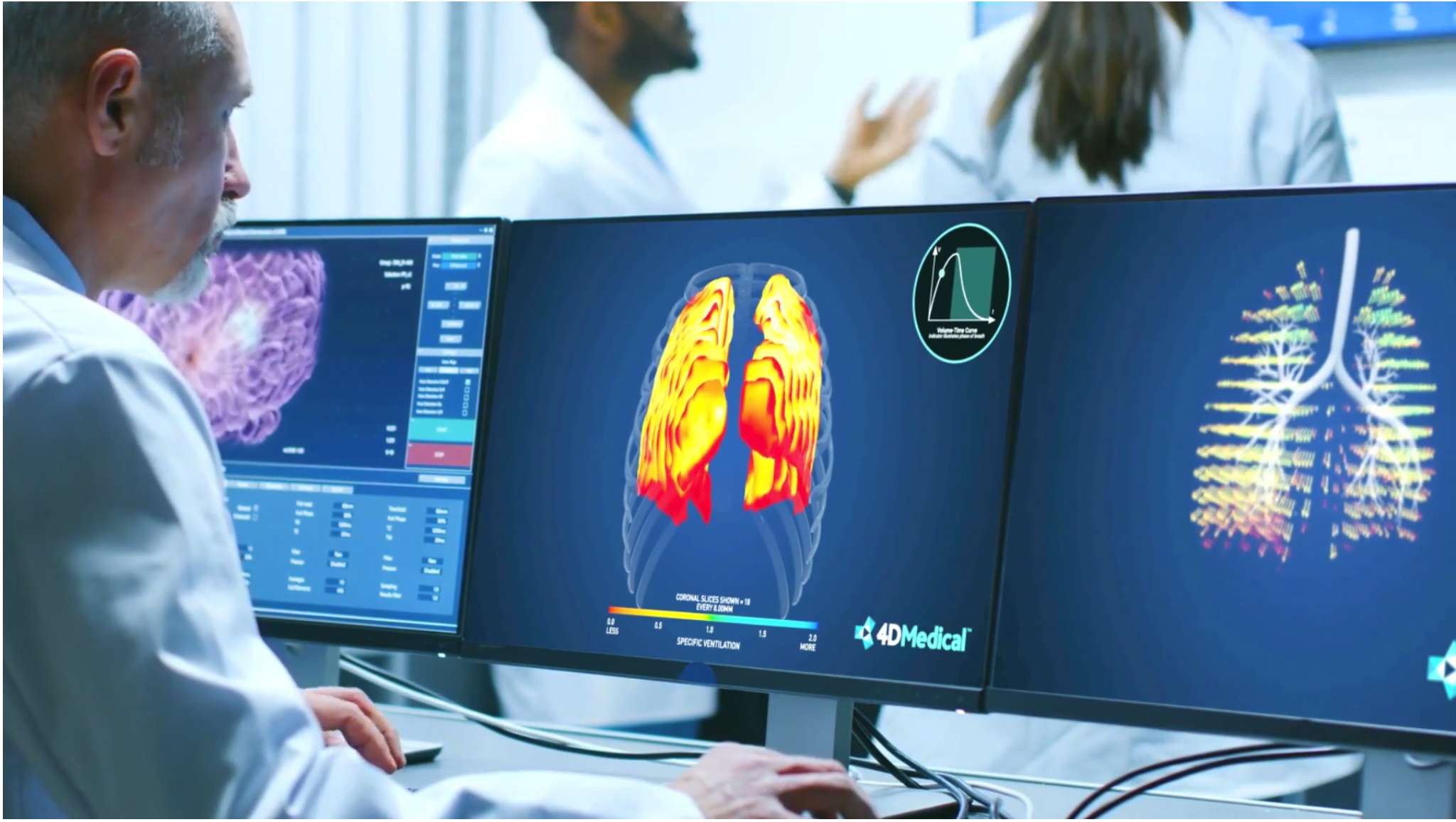4D Medical Nets FDA Clearance for CT LVAS Lung Function
Images

4DMedical has received FDA clearance for its CT-based ventilation product (CT LVAS). CT LVAS, designed for use with computed tomography scans, joins 4D Medical's XV LVAS imaging software cleared for use with fluoroscopy in the US. The FDA clearance for CT LVAS dovetails with the upcoming 4DMedical product, CT:VQ. CT:VQ will enable quantitative perfusion (blood flow) data and visualizations to be extracted from CT scans.
Standard CT images provide clinicians with structural detail about patients' lungs—from which they try to infer information about disease and function. CT LVAS adds a wealth of data on lung performance on top of the structural detail of CT scans. This capability fills an information gap that enables radiologists to provide the objective, data-driven information that could materially inform diagnosis and treatment options.
Greg Mogel, MD, consultant radiologist at 4DMedical notes, "Having assisted with image interpretation of CT LVAS exams in Australia, I've seen the diagnostic power of adding functional assessment to the structural information provided in standard non-contrast chest CTs. CT LVAS allows radiologists to provide a whole new dimension of lung health information to referring clinicians needing answers. I look forward to sharing this release at the upcoming RSNA."
CT LVAS software processes existing CT scans using sophisticated algorithms derived from aerospace technology. These highly detailed reports include color-coded images of regional airflow and lung ventilation—overlayed on the patient's CT scan. CT LVAS uses a software-as-a-service model and requires no new capital equipment. Scans from existing CT equipment are uploaded for processing, where they are analyzed and returned to the radiologist as the Ventilation Report.
CT LVAS measures lung ventilation in tens of thousands of locations in the lungs. The Regional Ventilation Visualizations provide region-specific ventilation at deep inspiratory breath-hold for a mid-coronal slice and three axial slices—Upper, Middle, and Lower. The regional ventilation data is quantified in lung volume change and regional lung ventilation heterogeneity.
"I am excited by the impact CT LVAS will provide caregivers and patients in the US," says 4DMedical Founder and CEO Andreas Fouras. "As we head to RSNA, I am thrilled that reimbursement has been approved for our XV LVAS product designed for fluoroscopy, and to also share FDA clearance for CT LVAS in the US. We also look towards the commercial release of CT:VQ and the opportunity to combine and provide the two sets of highly quantified lung pulmonary information from CT LVAS and CT:VQ.
In healthy lungs, ventilation and perfusion are well-matched, meaning that airflow and blood flow are equally distributed throughout the lungs. 4DMedical's CT:VQ technology will enable regional changes in ventilation and perfusion to be quantified and visualized, allowing a detailed assessment of V/Q mismatch. Clinically, these scans will primarily be used for diagnosing pulmonary embolism, but they can also be employed to assess conditions such as chronic obstructive pulmonary disease, pulmonary hypertension, and to evaluate pulmonary vascular disorders.
Importantly, perfusion (blood flow) data and visualizations from CT:VQ can be combined with the ventilation data and visualizations provided by CT LVAS for a highly quantified picture of lung performance.